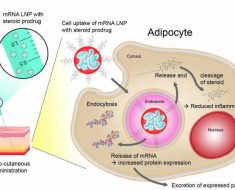Acute COVID-19 illness complications include stroke, encephalopathies, neuropsychiatric and inflammatory syndromes, whereas non-severe cases may suffer from longitudinal brain structure and cognition changes.

In a preprint version of a study posted to SSRN*, researchers investigated the potential of therapeutic drugs, remdesivir and dexamethasone, when used alone or in combination on neurological complications that arise in coronavirus disease 2019 (COVID-19) affected individuals.
About the study
The current prospective, observational, non-blinded study involved 89,297 adult COVID-19 patients admitted to hospital screened from 184,986 patients. Of these 89,297 patients, 64,088 were grouped into severe COVID-19 and the remaining 25,209 into non-hypoxic COVID-19.
Inclusion criteria included participants aged 18 and above (median age 71) admitted to the hospital between January 31st, 2020, and June 29th 2021, with laboratory-confirmed severe acute respiratory syndrome coronavirus 2 (SARS-CoV-2). Exclusion criteria defined COVID-19 vaccinated individuals and participants who tested positive for COVID-19 in hospitals. Fifty-six percent were male, whereas 71 % were of white ethnicity. Neurological complications occurred in 4.8% (4,245) of the cohort and consisted of seizures (925), meningitis/encephalitis (194), stroke (1,259), and others (not defined) (2,227)
Covariates involved age, sex, ethnicity, Dalhousie University Clinical Frailty score, smoking status, time from symptom onset to hospital admission, the severity of pulmonary infection, and eligibility for remdesivir.
Treatment groups included under both severe COVID-19 and non-hypoxic were no treatment, dexamethasone alone, remdesivir on day 1, remdesivir at any time, combined treatment on day 1, and combined treatment at any time.
Participants were treated with either remdesivir or dexamethasone or both. Treatment comparison groups included remdesivir alone vs. standard of care, dexamethasone alone vs. standard of care, and combined treatment vs. standard of care. Analysis was done separately for severe (supplemental oxygen required) or non-hypoxic (no supplemental oxygen required) patients. The case duration was considered from admission to the day of discharge, death, or continued admission.
Study findings
The researchers studied the effects of treatment groups on mortality in severely infected patients. Dexamethasone treatment reduced mortality, while it was found that remdesivir failed in reducing mortality. However, the combined treatment led to a significant reduction in mortality.
Intensive care unit (ICU) admissions were also reduced with the dexamethasone, whereas they increased when treated with remdesivir. This increase in ICU admission probably reflected the increased likelihood of its prescription to the sickest patients requiring higher levels of care. Both the treatments were not associated with worse self-care at discharge. With both the treatment strategies, either with dexamethasone or remdesivir, the incidence of neurological complications with increased mortality, ICU admission, worse self-care at discharge, and increased recovery time was reduced. Combined treatment showed a larger reduction in complications.
In non-hospitalized patients (50% male, 72% white), the treatment reduced ICU admission (0.9%), mortality (9.2%) worse self-care at discharge (13%), length of inpatient stay (5 days). Neurological complications were associated with increased mortality, ICU admission, worse self-care on discharge, and recovery time. This may be attributed to the possibility that patients with non-hypoxic COVID-19 had severe disease affecting organs outside the respiratory system. Treatment with dexamethasone reduced neurological complications. However, the combined treatment led to higher reductions.
The results demonstrated were consistent with the previous pivotal randomized controlled trials and ISARIC cohort studies.
Conclusion
This study suggests that remdesivir and dexamethasone can reduce neurological complications in patients suffering from severe COVID-19. Moreover, their synergistic effect was significantly greater than dexamethasone alone.
Despite having strengths such as a large study with real-life data and the use of the same control population for comparisons, the study has several limitations. The data was not collected on the onset of neurological complications or dexamethasone treatment, and the final diagnosis of these complications was not made. Furthermore, the time of the pandemic's start was not included in the propensity score, compromising the correct confounding effect.
*Important notice
SSRN publishes preliminary scientific reports that are not peer-reviewed and, therefore, should not be regarded as conclusive, guide clinical practice/health-related behavior, or treated as established information.
- Grundmann, Alexander and Wu, Chieh-Hsi and Hardwick, Marc and Baillie, J. Kenneth and Openshaw, Peter and Semple, Malcolm G. and Böhning, Dankmar and Pett, Sarah and Michael, Benedict and Thomas, Rhys H. and Galea, Ian, Impact of Dexamethasone and Remdesivir on Neurological Complications during COVID-19. SSRN: doi: https://ssrn.com/abstract=4065552 or http://dx.doi.org/10.2139/ssrn.4065552 https://dx.doi.org/10.2139/ssrn.4065552
Posted in: Medical Science News | Medical Research News | Disease/Infection News | Pharmaceutical News
Tags: Brain, Coronavirus, Coronavirus Disease COVID-19, covid-19, Dexamethasone, Drugs, Encephalitis, Hospital, Intensive Care, Laboratory, Meningitis, Mortality, Oxygen, Pandemic, Remdesivir, Respiratory, SARS, SARS-CoV-2, Severe Acute Respiratory, Severe Acute Respiratory Syndrome, Smoking, Stroke, Syndrome

Written by
Prajakta Tambe
Prajakta Tambe, Ph.D. worked at Queen’s University Belfast on a project that focused on studying ‘Role of Tregs in Acute Respiratory Distress Syndrome'. Prajakta completed a Ph.D. in August 2020 at Agharkar Research Institute, University of Pune, India. Her work aimed to develop dendrimer-based nanoparticles for the targeted delivery of MCL-1 gene-specific siRNA to bring about apoptosis in breast and prostate cancer cells and in vivo breast cancer xenograft models.
Source: Read Full Article





